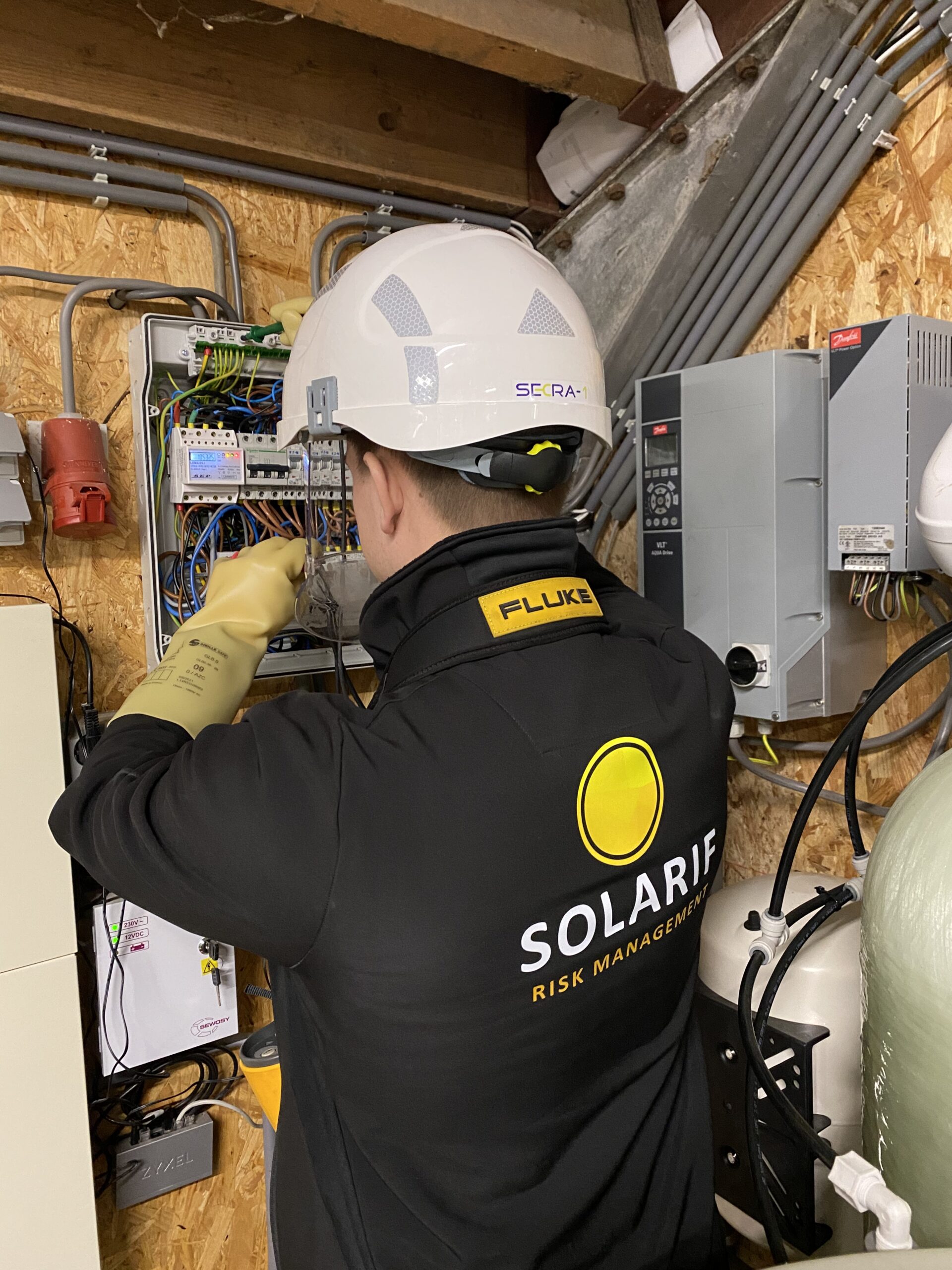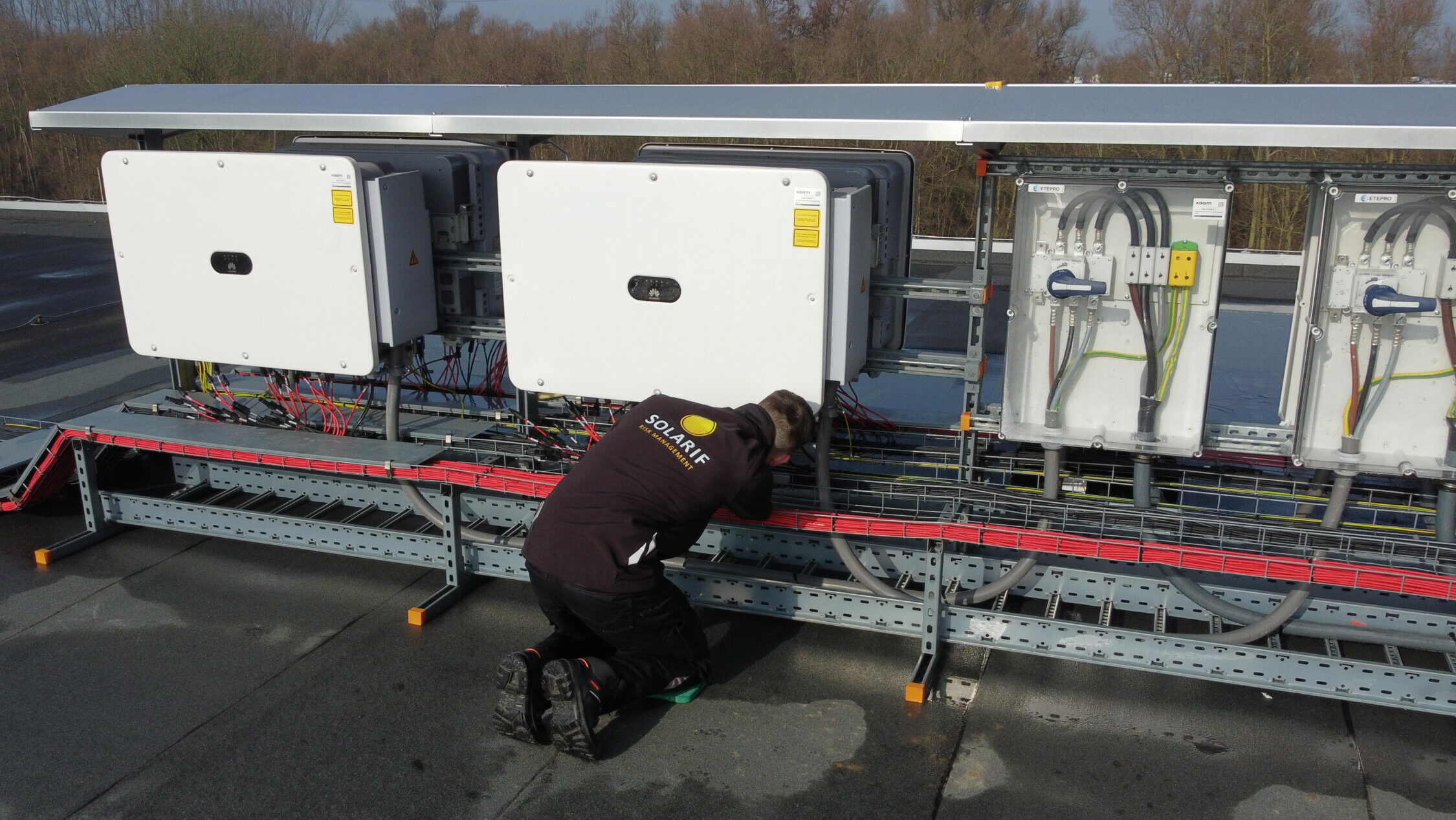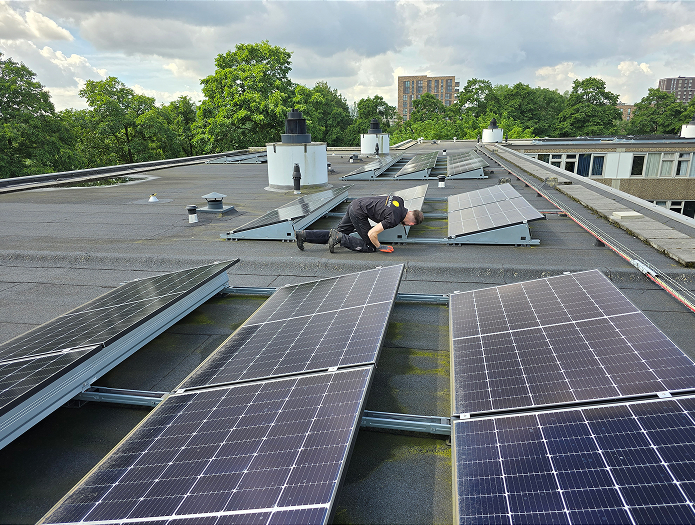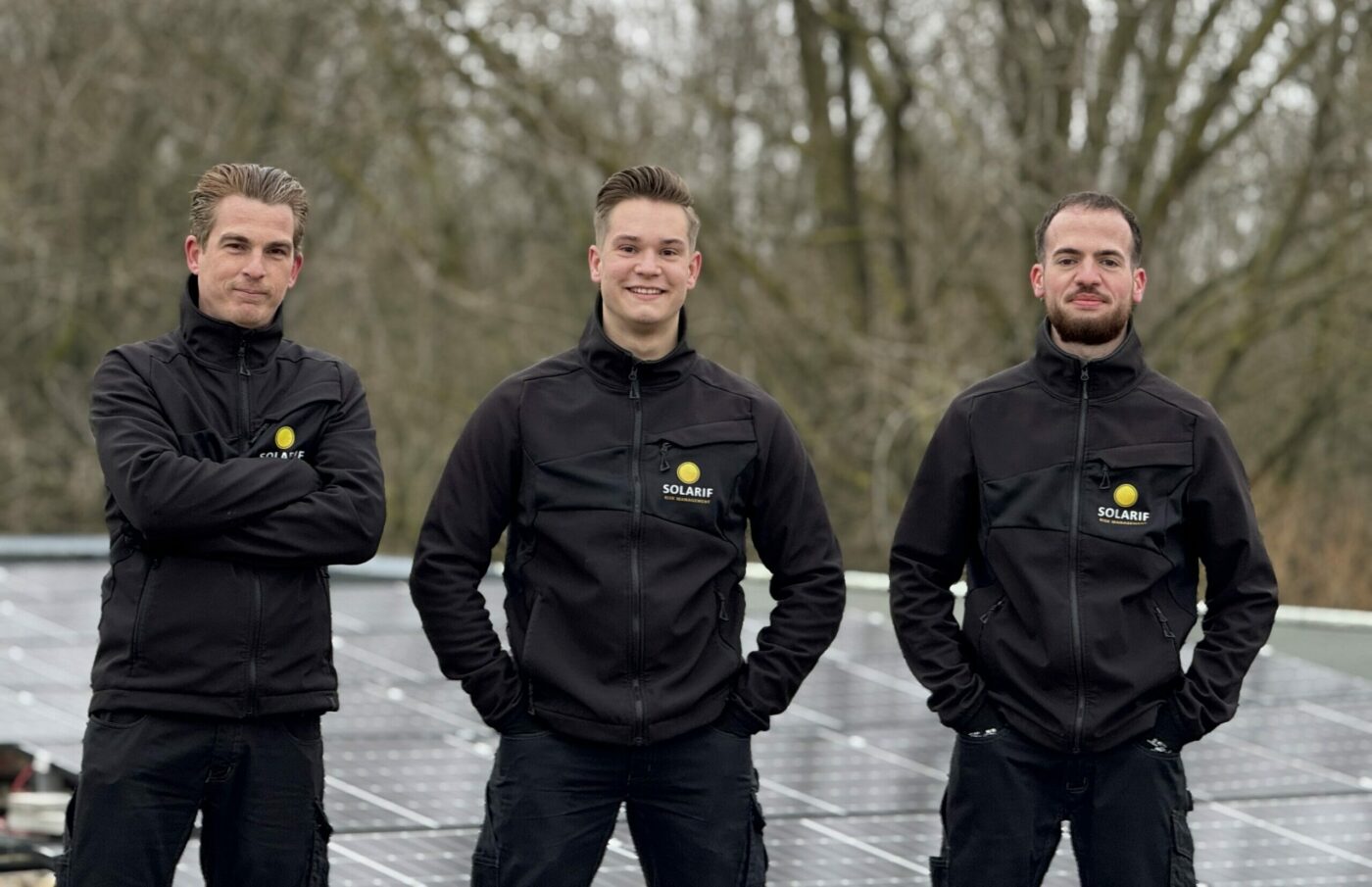How often should scope 12 inspections be performed on solar installations?
Scope 12 inspections for solar installations are comprehensive electrical safety assessments specifically developed for the Dutch insurance market and designed exclusively for commercial photovoltaic (PV) systems. While not legally mandatory, these inspections are typically required by insurance providers before offering coverage for commercial solar installations. The recommended frequency for Scope 12 inspections depends on several factors including installation size, natural disaster risks, and insurer requirements. Generally, an initial inspection is conducted upon installation completion, followed by periodic reassessments to maintain system safety compliance and insurance eligibility. Regular inspections help identify potential issues before they escalate into major problems.

What is a Scope 12 inspection for solar installations?
A Scope 12 inspection is a comprehensive assessment protocol specifically designed for commercial photovoltaic (PV) installations in the Netherlands that verifies electrical safety, installation quality, and compliance with industry standards. These inspections are developed specifically for the Dutch insurance market and are conducted according to established technical guidelines by SCIOS (Foundation for Certification of Inspection and Maintenance), a Dutch inspection framework. Scope 12 inspections focus primarily on identifying potential electrical and fire safety risks.
During a Scope 12 inspection for solar installations, certified SCIOS Scope 12 inspectors evaluate the entire system against specific technical standards, including NEN 1010, NEN 3140, NEN-EN-IEC 62446-1, NEN-EN-IEC 61439, and SCIOS Technical Document 18. The assessment covers electrical components, wiring, connections, inverters, and safety mechanisms to ensure the installation meets all required safety parameters.
The inspection process typically includes a thorough review of system design documentation: visual examinations of all components, electrical measurements, and functionality tests. The primary aim is to verify that the installation has been completed according to design specifications and complies with all relevant safety standards to prevent electrical hazards and fire risks. For insurance purposes, the inspection must have a positive outcome without any findings, and any issues identified must be resolved before insurance coverage can be secured.
Is a Scope 12 inspection mandatory for solar panel owners?
Scope 12 inspections are not legally required for all photovoltaic (PV) system owners. However, they are practically necessary when seeking insurance coverage for commercial solar installations. This is an important distinction that affects business owners with solar energy systems.
For residential PV owners, these inspections are typically not required. The necessity of Scope 12 inspections applies specifically to the commercial sector, where insurers have implemented this requirement as a prerequisite for providing coverage. Insurance companies require these inspections because they need to verify that commercial solar installations meet safety standards before agreeing to insure them.
The reason for this insurance requirement is straightforward: insurance companies will not insure unsafe systems due to the significant risks they present. By requiring a Scope 12 inspection, insurers can assess the safety, quality, and insurability of commercial solar installations before providing coverage.

How often should Scope 12 inspections be performed?
For commercial PV installations, a Scope 12 inspection should initially be performed immediately after installation completion and at the moment the system becomes operational. This establishes baseline compliance and is typically required to obtain insurance coverage for the installation.
Following the initial inspection, periodic reassessments are recommended based on several factors:
- System size and complexity – larger, more complex installations may benefit from more frequent inspections
- Environmental conditions – installations in harsh environments with extreme weather may require more regular checks
- Operational changes – any significant modification to the system should trigger a new inspection
- Insurance requirements – some insurers may specify inspection intervals as part of policy conditions
As a general guideline, many industry professionals recommend conducting a Scope 12 inspection every 5 years for standard commercial installations. However, in certain cases, insurers may require earlier inspections, especially for commercial buildings where business activities are of high value and where an interruption (such as a fire caused by the PV system) would cause significant financial losses. Roofs with solar installations represent a different and typically higher risk profile compared to roofs without installation.
For systems larger than 250kW, inspections typically take a full day or more to complete. Currently, due to a shortage of qualified inspectors, wait times for scheduling Scope 12 inspections can extend up to several months, which is important to consider in your planning process.
It’s always advisable to check with your insurance provider about their specific requirements for inspection frequency, as this can affect your coverage eligibility.
What are the benefits of regular Scope 12 inspections?
Regular Scope 12 inspections offer numerous advantages for commercial PV installation owners beyond simply meeting insurance requirements. These comprehensive assessments help ensure ongoing system safety, performance, and compliance.
Early problem detection is one of the primary benefits. Through thorough examinations, inspectors can identify potential issues such as loose connections, deteriorating components, or compliance gaps before they develop into serious problems that could lead to system failures or safety hazards.
Regulatory compliance verification is another crucial advantage. Solar technology and safety standards evolve over time, and regular inspections ensure your installation continues to meet current requirements. This is particularly important for business owners who need to demonstrate due diligence in maintaining safe operations.
Insurance qualification remains a fundamental benefit, as most commercial insurers require valid Scope 12 certification before providing or renewing coverage. Without current inspection certification, businesses may find themselves unable to secure appropriate insurance protection.
Additionally, regular inspections help maximize system performance and lifespan by identifying maintenance needs and optimization opportunities, potentially improving the return on investment for your solar installation.
Understanding Insurance Requirements for PV Installations
A Scope 12 inspection is a fundamental requirement for obtaining insurance coverage for commercial PV systems at normal premium rates. Rather than functioning as a discount mechanism, these inspections are a prerequisite set by insurers to verify that solar installations meet necessary safety standards.
Without a valid inspection certificate showing positive results (without findings that need to be addressed), most insurers will either decline to provide coverage altogether for commercial solar systems, or only offer coverage at higher premiums or with restrictive conditions. The inspection serves as a risk assessment tool for insurers to determine eligibility for standard coverage.
It’s important to understand that Scope 12 inspections specifically evaluate the fire safety of electrical installations, the technical condition of the installation, and the quality of the installation work. These assessments must be recognized by both SCIOS and insurance companies to be valid for insurance purposes.

Manufacturer Warranties vs. Insurance Coverage
Many solar system owners confuse manufacturer warranties with comprehensive insurance coverage, but they serve different purposes and provide different types of protection. Understanding these differences is crucial for proper risk management.
Manufacturer warranties typically do not cover consequential losses resulting from system failures. For example, if a panel fails, the manufacturer may replace the defective component, but expenses for transportation, labor, and removal of the old panel must be covered by the owner. Additionally, if the manufacturer goes out of business, the warranty protection disappears completely.
In contrast, inherent defect coverage through insurance works at the project level and remains valid even if the original manufacturer no longer exists. Insurance coverage can also include consequential damages resulting from system failures, providing more comprehensive protection.
Insurance becomes particularly valuable for larger commercial installations where the potential financial impact of system failures extends beyond just component replacement. To qualify for this comprehensive coverage, insurers typically require proper documentation, adherence to installation standards, and valid Scope 12 inspection certification.

Who should perform Scope 12 inspections?
Scope 12 inspections must be conducted by properly certified SCIOS Scope 12 inspectors with specific qualifications in solar installation assessment. In the Netherlands, these professionals must hold current certification to ensure they possess the necessary expertise and knowledge of relevant standards.
These qualified inspectors have undergone specialized training that covers the comprehensive technical requirements of solar installations, including electrical safety standards, fire prevention protocols, and industry-specific regulations. Their certification demonstrates competence in evaluating installations against standards such as NEN 1010, NEN 3140, NEN-EN-IEC 62446-1, NEN-EN-IEC 61439 and other relevant guidelines.
Understanding the Different SCIOS Scopes
SCIOS certification encompasses different scopes that address specific aspects of installation safety. The most relevant scopes for PV installations include:
- Scope 8: Electrical installations focused on safety for employees
- Scope 10: Fire safety inspection for electrical installations
- Scope 12: Fire safety fo Photovoltaic (PV) installations
These scopes can be combined in various ways depending on your specific installation. For example, Scope 8 and Scope 12 are often combined to address both the electrical infrastructure connections and the PV system itself if there are installations the employees have to work with. Similarly, Scope 10 and Scope 12 may be combined for broader installations with particular fire risks.
For battery strage systems integrated with PV installations, a combination of Scope 8, Scope 10, and Scope 12 inspections may be necessary to address both fire risks and other safety concerns.
Key takeaways about Scope 12 inspections for solar installations
Scope 12 inspections are comprehensive assessments specifically designed for commercial PV installations in the Netherlands to verify electrical safety, installation quality, and compliance with industry standards. It’s important to note that Scope 12 is exclusively for photovoltaic installations and cannot be applied to other forms of renewable energy. While not legally mandatory, these inspections are required by insurance providers before offering coverage for commercial solar installations.
The recommended inspection frequency begins with an initial assessment immediately after installation completion, followed by periodic reviews typically every 5 years, though this may vary based on system complexity, environmental factors, and insurance requirements. For high-value commercial buildings, insurers may require more frequent inspections due to the increased risk profile of roofs with solar installations.
Regular inspections offer significant benefits including early problem detection, compliance verification, and continued insurance eligibility. These assessments must be performed by properly qualified professionals with SCIOS certification specifically for Scope 12 inspections.
For commercial PV installation owners, scheduling regular Scope 12 inspections is a prudent business practice that helps ensure system safety, performance, and compliance while maintaining eligibility for insurance coverage. By partnering with certified SCIOS Scope 12 inspection professionals, businesses can protect their solar investments and maintain safe, compliant operations.
Take action, contact us today!
Solarif has conducted more than 1,000 Scope 12 inspections and has extensive experience in this specialized field. If you’re considering a solar installation for your business or need to schedule an inspection for an existing system, contact us for your required Scope 8, Scope 10 and Scope 12 compliance inspection to ensure you remain compliant with industry standards and insurance requirements.




